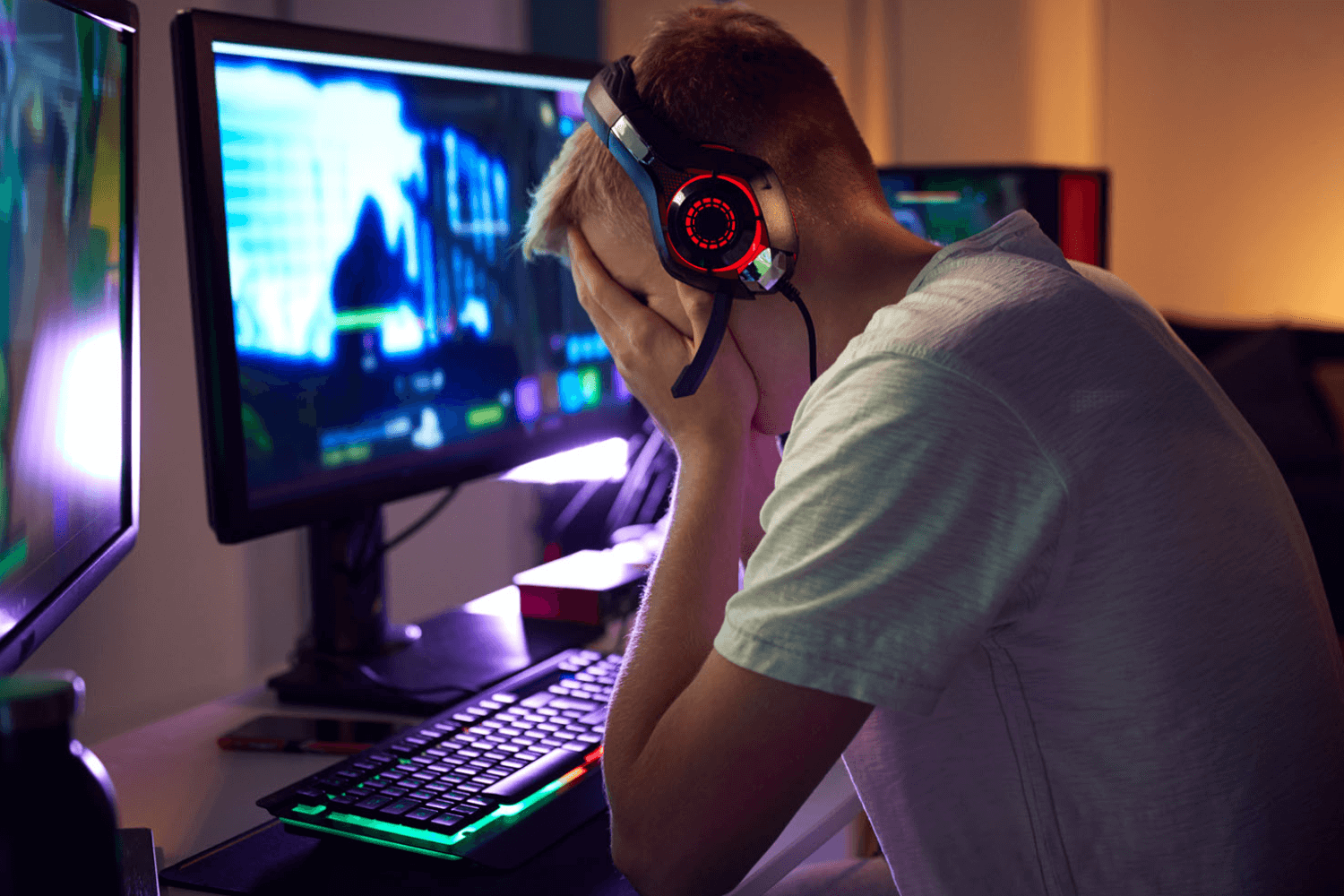Same Day, Weekend, and Evening Appointments Available!

The advent of the digital age, with its advanced gaming platforms and online communities, has fundamentally altered our leisure time, creating immersive worlds that captivate and engage. However, when the line between enjoyment and dependency blurs, it can lead to a behavioral disorder known as gaming addiction. This blog post from Louis Laves-Webb, LCSW, LPC-S & Associates discusses the root causes, indicators, negative repercussions, and therapeutic interventions for gaming addiction.
A host of intertwining factors, both internal and external, play a role in triggering gaming addiction, adding layers of complexity to this behavioral disorder.
Internal factors could range from individual personality traits, such as impulsivity or high-stress levels, to pre-existing mental health conditions, such as depression or anxiety. External factors could involve environmental elements like peer pressure, availability and accessibility of gaming platforms, or significant life changes and stressors. Learn more about the triggers of gaming addiction below.
The immersive nature of video games offers players an escape from reality, providing a temporary refuge from real-life problems or emotional discomfort. This escapism can develop into an unhealthy reliance on gaming.
The drive for achieving high scores, leveling up, or defeating opponents in gaming can feed addictive behaviors. The immediate rewards and recognition provided by these games can be highly compelling.
The fear of missing out on gaming events or online interactions can grow into an irresistible compulsion to game continuously, fuelling addiction.
In some cases, individuals grappling with self-esteem issues or feelings of insignificance may use gaming as a medium to feel competent or influential.
Recognizing a gaming addiction can be a challenging task, as the line between passion and pathological behavior can often be blurred. Yet, certain signs can indicate a potential issue. A detailed understanding of these indicators is crucial in identifying the addiction early and starting the recovery process. These signs are not just surface-level symptoms; instead, they represent deeper issues that necessitate attention and intervention. Learn more about the indicators of gaming addiction below.
When individuals begin to lose track of time while gaming, often at the expense of essential daily activities, it may indicate an addiction.
Signs of unease, irritation, or anxiety when unable to game could signify a gaming addiction.
When gaming takes precedence over real-world duties like work, academics, or personal relationships, it might be a sign of gaming addiction.
Repeated unsuccessful attempts to manage, reduce, or halt gaming could suggest an addiction.
Unchecked gaming addiction is not a benign issue; it can manifest in a variety of ways that can significantly impact an individual's life. This impact is not confined to one aspect of the person's life, but rather it can seep into every corner, creating a ripple effect of challenges and difficulties. Learn more about the adverse effects of gaming addiction below:
Despite the perceived social aspect of online gaming, excessive gaming can lead to real-life social withdrawal, as face-to-face interactions get replaced with virtual ones.
Extended gaming sessions can lead to health issues like eye strain, disrupted sleep patterns, and physical inactivity-related problems.
Over-gaming can trigger stress, depression, anxiety, and lower self-esteem.
Excessive gaming can hinder productivity and impact work or academic performance adversely.
At Louis Laves-Webb, LCSW, LPC-S & Associates, our team has expertise in diagnosing and treating gaming addiction. We utilize the following treatment approaches when it comes to dealing with gaming addiction:
CBT can help individuals understand the thoughts and emotions driving their behaviors, equipping them with tools to effectively manage their gaming habits.
A planned break from digital devices, specifically gaming platforms, can be a critical step in addressing addiction.
Awareness of the nature and effects of addiction can inspire individuals to acknowledge their problematic behaviors and spur recovery.
Involving family members in the treatment process can help cultivate a supportive environment conducive to recovery.
Mindfulness practices can aid individuals in controlling urges and cravings linked to addiction.
At Louis Laves-Webb, LCSW, LPC-S & Associates, we believe in adopting a holistic and personalized approach to treating gaming addiction. We acknowledge the unique experiences of each individual and curate a distinctive path to recovery. Hence, we offer various therapeutic approaches tailored to each individual's needs.
In addition to individual therapy, we advocate for the use of support groups, like Gaming Addicts Anonymous, modeled after the structure used by Alcoholics Anonymous. These groups can serve as a powerful resource during the recovery process, providing shared experiences, strategies to manage addiction and the assurance that individuals are not alone in their struggle.
Moreover, addressing co-occurring mental health issues like anxiety or depression, which often intertwine with addiction, is crucial. A holistic strategy that considers all aspects of an individual's well-being tends to be most effective for sustainable recovery.
Gaming addiction is an increasingly prevalent issue in our digital era, but with awareness, support, and professional help, overcoming it is feasible. At Louis Laves-Webb, LCSW, LPC-S & Associates, we are dedicated to providing the necessary guidance and therapeutic support to help individuals regain control of their gaming habits and achieve a balanced lifestyle.
If you or a loved one is battling gaming addiction, remember that you are not alone, and help is available. Learn more about process addiction here, or schedule an appointment for our behavioral addiction counseling and therapeutic services in Austin, TX, contact us today. At Louis Laves-Webb, LCSW, LPC-S & Associates, we are here to assist you on your path to recovery.